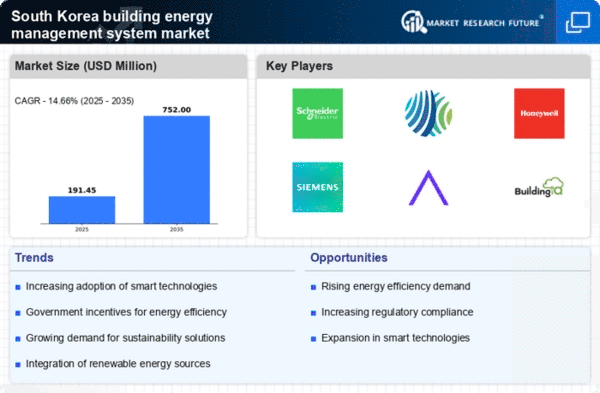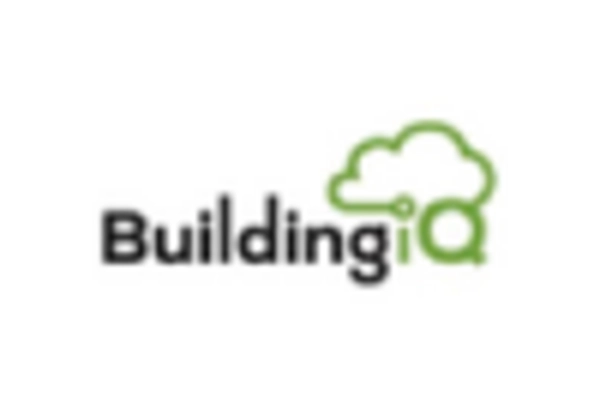Rising Energy Costs
The escalating costs of energy in South Korea are driving the demand for building energy-management-system market solutions. As energy prices continue to rise, businesses and property owners are increasingly seeking ways to optimize energy consumption and reduce operational expenses. The building energy-management-system market provides tools for real-time monitoring and analysis of energy usage. This allows for more informed decision-making. In 2025, energy costs are projected to increase by approximately 15%, prompting a shift towards energy-efficient technologies. This trend indicates a growing reliance on building energy-management systems to mitigate financial impacts and enhance sustainability efforts.
Sustainability Goals
The increasing emphasis on sustainability and environmental responsibility is a key driver for the market. South Korea has set ambitious targets for reducing greenhouse gas emissions, aiming for a 40% reduction by 2030. This commitment encourages businesses to adopt energy-efficient practices and technologies. Building energy-management systems play a crucial role in achieving these sustainability goals by providing insights into energy consumption patterns and facilitating the implementation of energy-saving measures. As organizations strive to meet regulatory requirements and enhance their corporate social responsibility, the demand for building energy-management systems is expected to grow.
Technological Advancements
Technological innovations are significantly influencing the building energy-management-system market in South Korea. The integration of advanced analytics, artificial intelligence, and machine learning into energy management systems allows for enhanced predictive capabilities and automation. These technologies enable users to identify inefficiencies and optimize energy usage more effectively. In 2025, it is estimated that the adoption of smart building technologies will increase by 20%, further propelling the growth of the building energy-management-system market. As organizations seek to leverage these advancements, the demand for sophisticated energy management solutions is likely to rise.
Increased Regulatory Pressure
The market is also being shaped by heightened regulatory pressure in South Korea. The government has implemented stricter energy efficiency standards and building codes, compelling property owners to adopt energy management solutions. Compliance with these regulations is essential for avoiding penalties and ensuring operational efficiency. In 2025, it is anticipated that regulatory frameworks will become even more stringent, further driving the adoption of building energy-management systems. This regulatory environment creates a favorable landscape for market growth, as organizations seek to align with compliance requirements while enhancing their energy performance.
Urbanization and Infrastructure Development
Rapid urbanization in South Korea is contributing to the expansion of the building energy-management-system market. As cities grow and infrastructure develops, there is an increasing need for efficient energy management in commercial and residential buildings. The government has invested heavily in smart city initiatives, which often include the deployment of building energy-management systems to optimize energy use. By 2025, urban areas are projected to account for over 80% of the population, intensifying the demand for energy-efficient solutions. This trend suggests that the building energy-management-system market will continue to thrive as urban centers evolve.

















Leave a Comment